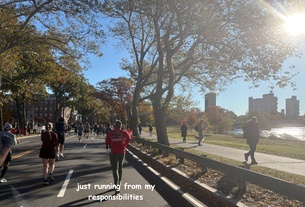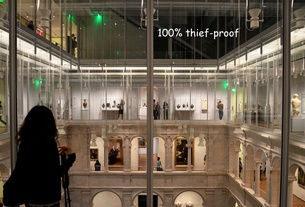Crimson staff writer
Kevin Lin
Associate Editor Kevin Lin can be reached at kevin.lin@thecrimson.com.
Latest Content
Advice to Josh: What is Love?
February is scary for a lot of reasons: three of Taylor Swift’s exes have their birthdays this month, The Boy Scouts of America was founded back in February 1910, and Valentine’s Day exists. Between wondering why hearts don’t look like anatomical hearts and how the Datamatch algorithm works, this amorous holiday can be a confusing time for many people, but for no one more so than our cherished, forever-freshman Josh. He needs FM’s help to get to the root of what this holiday is all about. We’ve asked some of our writers to help Josh answer the age-old question: What is love?
Cabot Science Library, A Little Treasure of the Past
Kevin Lin sits down with a friend, Karly Y. Hou '23-'24, and chats about remembrances of things past in Cabot Science Library.
‘Preventing Preventable Death’ in Cambridge’s Overdose Crisis
But the opioid overdose crisis is of course a public health problem — as well as a medical, urban planning, and legal problem. That multidimensional epidemic has only been exacerbated by the Covid-19 pandemic, and responding to it will require the concentrated efforts of every segment of society. Harvard is no exception.
Christopher M. McGrory
Before leaving campus in March, Christopher M. McGrory’s main extracurricular commitment was playing for Harvard’s varsity baseball team. As the Ivy League has cancelled all seasons since March, McGrory says he has actually taken on more extracurricular activities this year.
Inside Mather Tower’s Metal Cage
Eventually, Bakshi heard a voice for “the first time in forever.” God? The ghost of Increase Mather? The Taco Nacho Salad Odor brought to life? No: the elevator’s telecom system. (When we press about the duration of “forever,” Bakshi clarifies that it had in fact been only 20 minutes.) The voice belonged to a serviceman who said, “We’ll have somebody come over to you right now.”
A Value Proposition
Harvard makes its students an implicit promise: that it can give them both a liberal arts education and a high-paying job following graduation. But this promise has never been equally accessible to everyone — and the pandemic has exacerbated this inequity.
El Jefe's vs. the "Food Delivery Oligopoly"
Amid renewed and perhaps unprecedented demand, the companies that have come to dominate the food delivery industry charge partnered restaurants between 25 percent and 30 percent of profits on every order. John F. Schall, the owner of Harvard Square’s El Jefe’s Taqueria (fondly known as “Jefe’s”), frames the issue simply, “The delivery companies have developed a business model that is absolutely destroying the supply chain that they depend on.”
Lamonsters Go Remote: A Workspace Showcase
We solicited our classmates, some Crimson writers, others not, to send us photos of where they spend their days online to get a new perspective on what is not included in a Zoom frame.
The Power and Powerlessness of Remote Activism During COVID-19
“You’re scattered all over the country, all over the world. You’re literally taken away from the community that you’re trying to organize in,” says Zoe L. Hopkins ’22, incoming president of the Harvard Organization for Prison Education and Advocacy. “The meaning of community organizing just changes completely.”
Research at the Intersections of COVID-19 Crisis Response
The AAPI COVID-19 Project, housed at Harvard’s Department of Sociology, comprises a team of eight researchers from multiple universities. Under Shaw’s leadership, they seek to investigate how COVID-19 — as both a virus and a social construction — is impacting Asian, Asian American, and Pacific Islander (AAPI) individuals and communities.
Advice to Josh: Quarantine
With a limited amount of things to do in quarantine, FM is coming back from its six-year hiatus to provide advice to our eternal and anonymous freshman, Josh. We’ve asked FM writers to help Josh come up with some new ideas to help pass his time in quarantine. Josh didn’t even ask for FM’s advice — so you can be the judge of who’s really crying for help here. Anyway, here are their expert answers.
A Harvard Epidemiologist's Reminder of Our Common Humanity
Nancy Krieger is a professor of social epidemiology at the Harvard T.H. Chan School of Public Health. Krieger is known for her theory of ecosocial disease distribution, which examines how different historical, societal, and ecological conditions are made manifest in the health outcomes of different social groups — in other words, how factors like economic inequality affect public health. Fifteen Minutes spoke with her about how the coronavirus pandemic has revealed the social determinants of health inequality and what we can do to alleviate those inequities. This interview has been edited for clarity and concision.
A Harvard Handwashing Expert Weighs in on Corporate Responsibility Amid the COVID-19 Pandemic
Myriam Sidibe has a Ph.D. in handwashing. Well, almost. “If you look at it very literally, I don’t have a Ph.D. in handwashing: I have a doctorate in public health that is focused on handwashing with soap, and I spent the last 20 years thinking about handwashing with soap. That is the reality,” Sidibe clarifies.
Third Spaces
Yarin says that, for her, part of Hassle’s value lies in “the way we show Boston in all its trashy, shitty, hardscrabble glory.”
Crafting a Feminist History at Art & Soul
From 1984 to 2001, Hoffman and Carole Ann Fer co-owned Clayground, a pottery studio that the Cambridge Women’s Commission refers to as a “socialistic pottery business.”



















